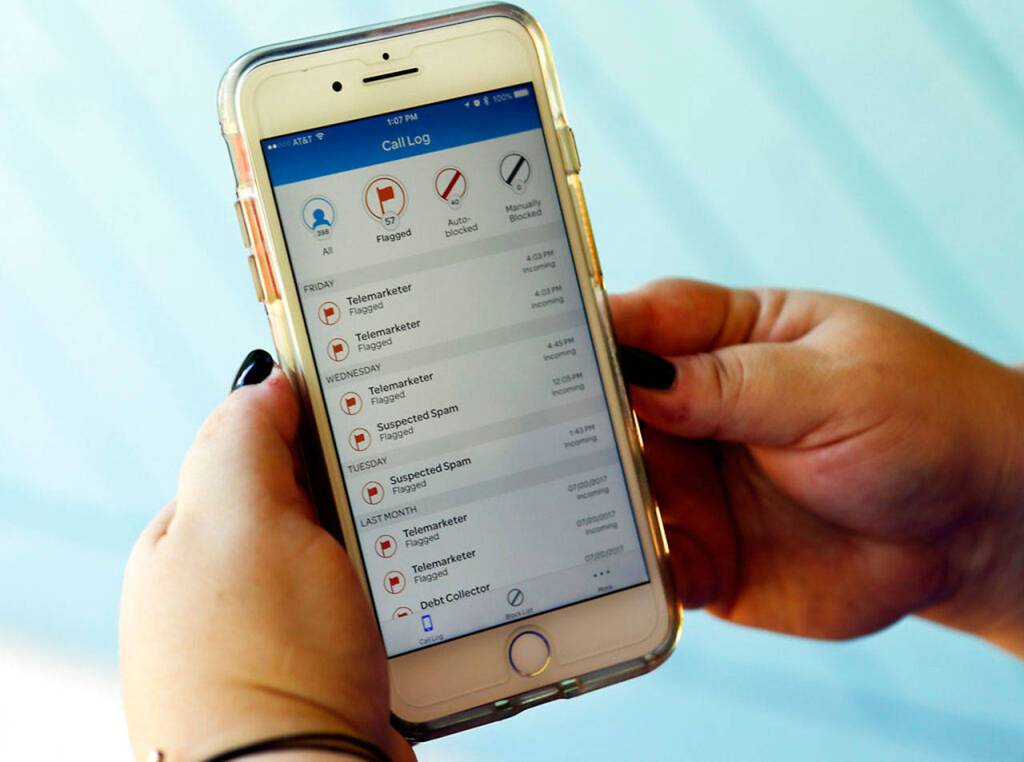Editorial: Congress, agencies move to shut down robocalls
Published 1:30 am Tuesday, July 2, 2019


By The Herald Editorial Board
If you’ve noticed an increase recently in … (phone ringing)
Do you want to check and see who that is? We’ll wait. No problem.
Robocall? Did you answer? You let it go to voice mail? Good call.
As we were saying, if you’ve noticed an increase recently in robocalls — those automated calls to your cellphone or landline with come-ons to lower your credit card debt or ploys to wheedle your Social Security number and other information from you — you’re hardly alone.
An estimated 4.7 billion robocalls were made to cellphones and other mobile devices this May alone, according to YouMail, a service that offers a free phone app that can block such calls. That figure was more than double the number of robocalls from the same period two years ago.
Those calls have resulted in about 10,000 complaints each day to the Federal Trade Commission, The Washington Post recently reported.
Other figures show the robocalls, mostly dubious sales calls and scams, have grown from 29 billion in 2016 to more than 48 billion in 2018, while about 1 in 10 adults have been defrauded by a scam that started with a robocall. Of the nearly 3 million fraud complaints that the FTC’s Consumer Sentinel Network collected last year, nearly 7 in 10 where initiated over the phone, resulting in a total loss of $429 million to consumers.
One surprise in the Sentinel data book, younger people reported losing money to fraud more often that older people; 43 percent of the reports were from those between 20 and 29, compared to 15 percent of those 70 to 79. But older Americans reported greater median losses, $750 for those in their 70s and $1,700 for those 80 and older.
Federal agencies and members of Congress must be getting the same calls, too, because both have announced recent action that should help people block those calls and avoid annoyances at the least and financially damaging scams at the worst.
The Federal Communications Commission announced a ruling last month that will allow phone companies to block robocalls to your number without your having to request it. Previously, you could ask your provider to block robocalls, but you had to request it. However, the FCC made no requirement that carriers offer the service for free.
Companies, according to a National Public Radio report, are expected to ramp up its blocking over time, starting with the worst offenders.
At the same time, Congress has moved forward on separate bills meant to help block robocalls. The Senate has already passed its bill, and the House recently advanced stronger legislation, the Stopping Bad Robocalls Act, that would require phone carriers to offer screening that would identify and block spam and robocalls, and offer the service without charge.
Both of the region’s House members, Reps. Suzan DelBene, D-1st District, and Rick Larsen, D-2nd District, have signed on as sponsors to the bill.
In the meantime, there are steps consumers can take, recommendations from state and federal agencies and consumer groups, including the AARP:
Register your phone number with the National Do Not Call list at www.donotcall.gov/ or by calling 800-382-1222. You’ll need an email address to register. If you receive an automated call after registering, you can go to the same website to report it to the FTC.
Use a blocking app, such as YouMail.
When you get a call from a number you don’t recognize, let it go to voice mail.
Be aware that many robocalls spoof numbers to make the calls look like they’re coming from a local phone number.
Verify callers. If a caller claims to be from the Social Security office, a bank or other authority, hang up and look up the agency or company’s number and ask if they tried to contact you.
Don’t press keys or say anything to a recorded call or follow prompts to a live operator. Responding could lead the spammer — who dial numbers at random — to try your number again.
If you talk with telemarketer, don’t be pressured into an immediate sale; ask for time to consider the offer or ask for information to be mailed to you.
Finally, if you fall victim to a scam, don’t be embarrassed; take action and report it to the Washington state Attorney General’s office at www.atg.wa.gov/file-complaint or the National Consumer League.




